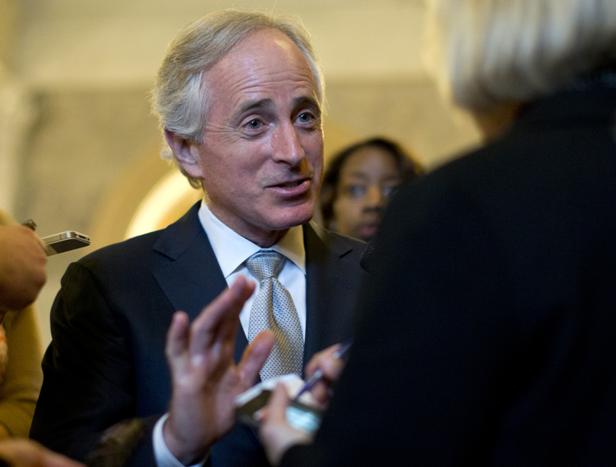WASHINGTON - In 1966, a young Republican lawyer and U.S. Senate candidate named Howard H. Baker Jr. rode a Greyhound bus around Tennessee every day but Sunday, stopping by Morristown, Memphis and everywhere in between.
The future White House chief of staff and U.S. ambassador to Japan enjoyed the backslaps and the hobnobbing, telling biographer J. Lee Annis Jr. he visited "every village, hamlet, city and crossroads in Tennessee." Beyond that, he did something unusual for a white Southerner in the 1960s: He opened headquarters in black areas of the state's largest cities and started campaign organizations at 80 percent of the state's colleges.
Baker won the 1966 GOP primary; soon after, the voting public provided the initial big distinction in a storied career: the first elected Volunteer State Republican since Reconstruction.
He and other former and current U.S. senators are criticizing a proposed Republican bill in the Tennessee Legislature that would jeopardize traditional campaigns and nullify the need to shake hands, meet people and win their votes in a primary.
Sen. Frank Niceley, R-Strawberry Plains, sponsored a bill to take away the public's power to select primary nominees for U.S. Senate and give it instead to Tennessee's 132 state lawmakers.
A phone call from a sitting senator appears to have killed the bill for this year, but Niceley said he will continue to push for it.
If it became law, Tennessee would be unique -- the only one among the 50 states not to follow the 17th Amendment to the U.S. Constitution, which a century ago took away state legislatures' power to name U.S. senators.
"It's a bum idea," Baker, 87, said of Niceley's bill in a phone interview from his Huntsville, Tenn., home. "It's bad anytime you take away a privilege from the public at large. What good does it do?"
The antipathy is bipartisan. Harlan Mathews, a Nashville Democrat who in 1993 replaced Vice President Al Gore as Tennessee's junior senator, called Niceley's idea "backward."
"It's a lot easier to get a majority of 132 than it is 6 million," Mathews said in a phone interview, referring to Tennessee's population. "People ought to have a say-so about who's in office."
Longtime Democratic Sen. Jim Sasser said charming Tennessee's population is an appropriate political challenge for candidates who believe they can represent a diverse state that includes high numbers of inner-city Democrats and mountain Republicans.
"I don't always agree with the voters," Sasser said from his Washington home, "but I think they should always have the last word."
Other former senators, perhaps wary of crossing lawmakers at the state level, declined to comment.
"Unfortunately, I think he's going to pass on this one," said Matt Smith, spokesman for former U.S. Senate Majority Leader Bill Frist.
U.S. Sen. Bob Corker wasn't as shy. Usually one to avoid commenting on state issues, Corker this month placed calls to House Speaker Beth Harwell, R-Nashville, and other state lawmakers to kill the bill.
"I think we had 650,000 [actually, 457,000] people who voted in the last primary, and to say that they no longer play a role in choosing who their nominee is, I don't think that would go over very well," Corker said in Memphis last week.
Corker's seat would be the first affected by Niceley's bill if it passes. That's the result of a special exemption given to U.S. Sen. Lamar Alexander, a longtime lawmaker who faces re-election next year. The law would take effect Nov. 30, 2014, a month after Alexander's race concludes.
Asked to comment on the overall proposal, Alexander spokesman Jim Jeffries said: "Sen. Alexander appreciated Sen. Niceley's compliment that he was doing a good job and that is what exempted him from the bill."
Contact staff writer Chris Carroll at 423-280-2025 or ccarroll@timesfreepress.com.

